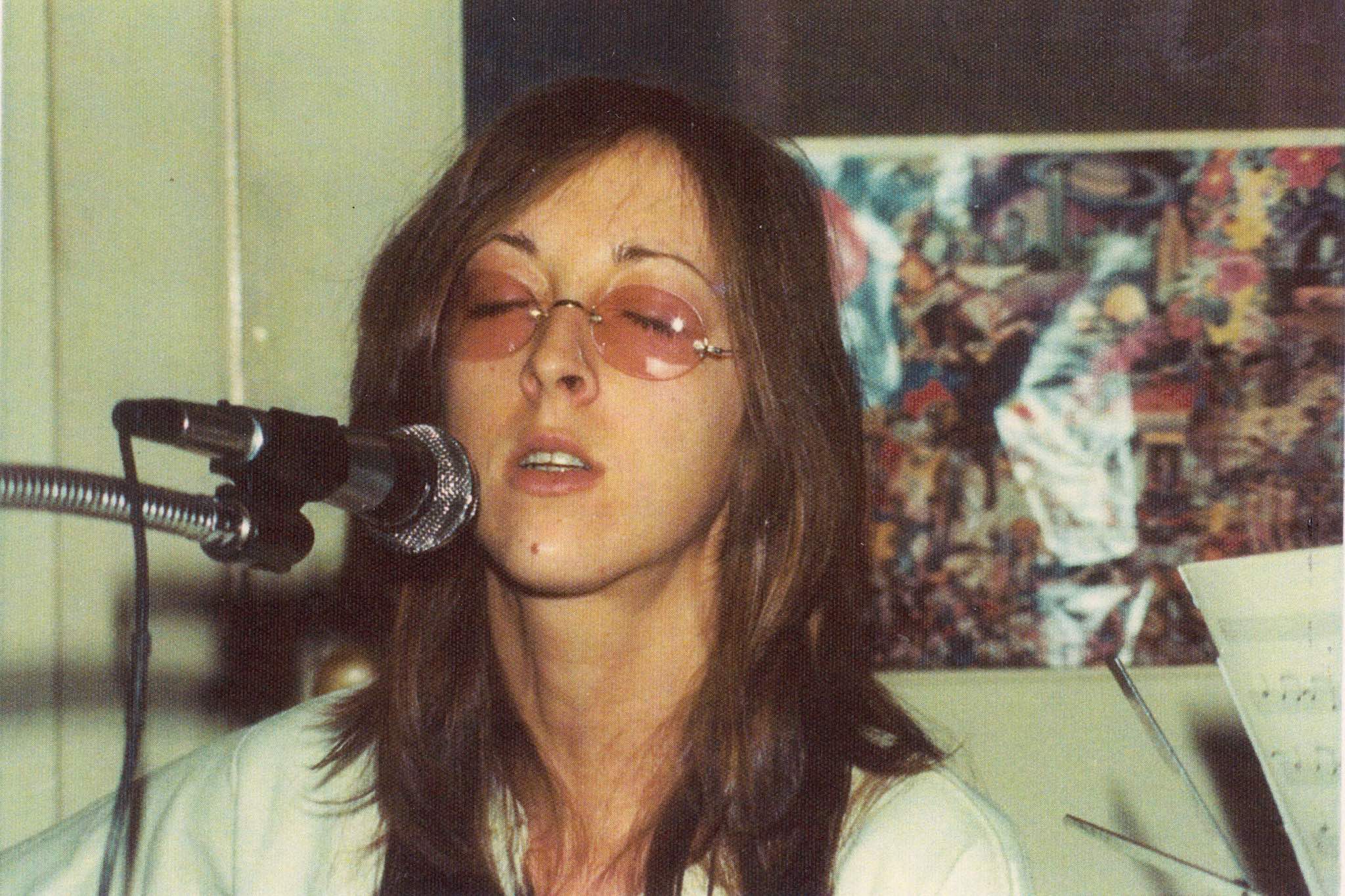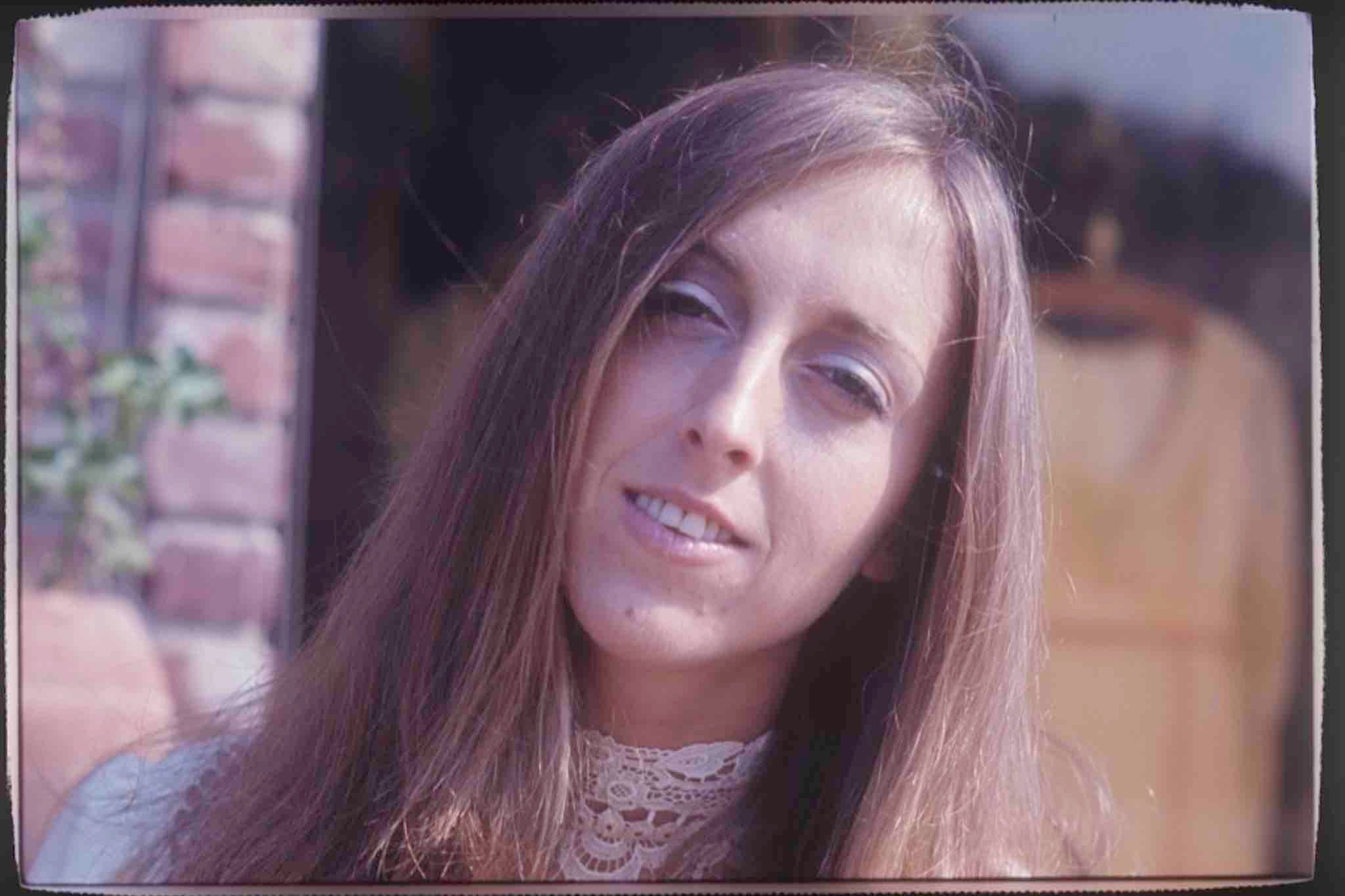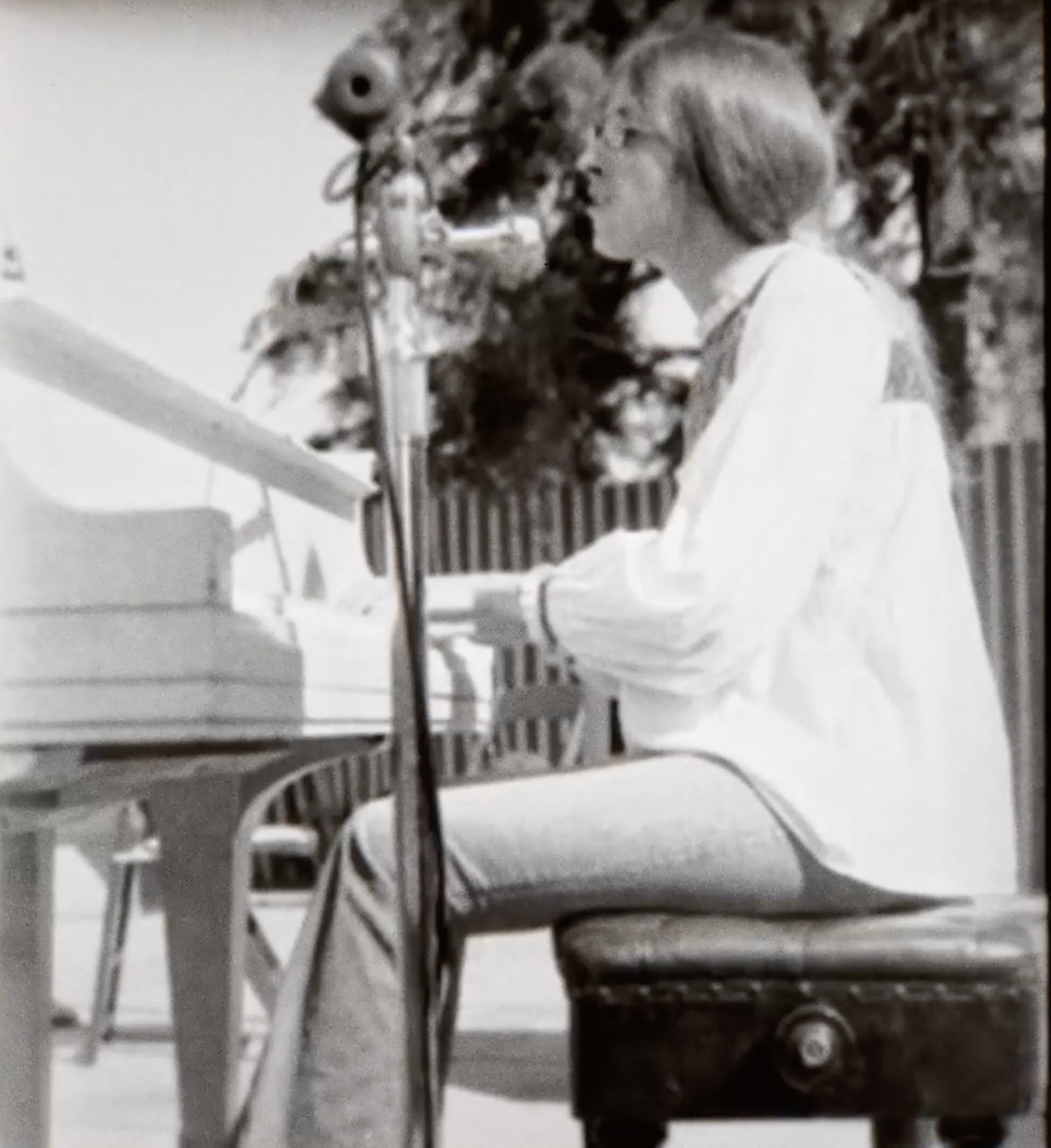The untold story of Judee Sill, folk-rock’s forgotten genius finally getting her flowers
When singer-songwriter Judee Sill overdosed in 1979, aged just 35, no obituaries were printed. A re-evaluation of the musician has introduced her folk-rock country music to a new generation, as a new documentary sheds light on a life of crime, addiction, and abuse. Jim Farber speaks to the film’s creators and Sill’s friends, including Graham Nash and Andy Partridge of XTC, about her astounding legacy

At the start of the 1970s, no label seemed hipper or more tasteful than Asylum Records. Co-founded by David Geffen, the imprint helped spearhead the singer-songwriter movement by releasing seminal works from Jackson Browne, Joni Mitchell, Warren Zevon, Tom Waits, and the Eagles, who the label had helped form. Before Geffen inked any of them, however, he made his first signing to Asylum an unknown singer-songwriter named Judee Sill. “I want to be a big star,” Sill recalled telling Geffen in a diary entry she wrote at the time. “How big?” he asked. “I want to be a bigger star than has ever been before,” she responded.
Sadly, just the opposite happened. The two Judee Sill albums Asylum released in 1971 and 1973 barely drew a cult, causing the label to drop her, exacerbating a pattern of sad circumstances and desperate decisions that had plagued Sill since she was a child growing up in Oakland. Penniless and in pain, she died of a drug overdose in 1979 at age 35. No obituary appeared anywhere at the time, small wonder since her albums had, by then, vanished from the bins.
In 2006, however, a re-evaluation began, fuelled by the internet’s ability to disinter even the most deeply buried treasures. The albums Sill recorded in her lifetime – marked by a sui generis mix of folk-rock, classical music, and country – were re-released, followed by a live album of performances she gave for the BBC. Then, in 2009, a tribute album to her work appeared featuring covers by stars like Beth Orton and Ron Sexsmith.

In the years since, a new generation of stars has sung her praises, including the American singer Laura Veirs, who wrote “Song for Judee” for a 2016 collaborative album she cut with k.d. lang and Neko Case. Last year, the Irish singer CMAT, who has a tattoo of Sill on her arm, told an interviewer: “When I was 17, I realised this was going to be the most important music of my life.”
But what’s been missing in all of this is the full story of Sill’s own life in all its grit and glory. This week, that finally changes with the release of a decade-in-the-making documentary, Lost Angel: The Genius of Judee Sill. With empathy and candour, the film – directed by Andy Brown and Brian Lindstrom – covers both her artistic peaks and her harrowing backstory, the latter involving a litany of alarming events including child abuse, armed robbery, forgery, homelessness, and heroin addiction.
The idea that she was a so-called tortured artist, though, was called out as “bullshit” by those in her inner circle. “Everyone told us she was incredibly fun to be around,” Lindstrom says via Zoom from his home in Portland. “They said, ‘Please don’t paint her with this one brush stroke of doom.’”
In a rare 1972 interview, Sill seems downright enthusiastic spilling the beans on her troubled past. When she’s asked for stories from her early life, she chirps, “Would you like some of the wilder ones?” To Brown, her reaction had less to do with media savvy than with Sill’s core character. “She didn’t like bulls***,” he says. “Judee liked to tell the truth, unfiltered.”
Her truth was often ugly, especially in her formative years. When Sill was seven, she lost her father to pneumonia. “That created a wound that set her on the course of the rest of her life,” Lindstrom says. Things got worse when her mother remarried an abusive man named Kenneth Muse, who was an animator for the hugely successful cartoon franchise Tom and Jerry. He fought violently with her mother, who Sill describes in her diary as “mean, on top of being dumb”.

For comfort, Sill turned to music. The family’s upper-middle-class status meant she had access to all the music lessons and instruments she could ever want. “She took piano very early on and became a deft player,” Lindstrom says. “She also took compositional classes.” In those lessons, she learnt the discipline and breadth of classical music, including Bach’s sacred songs whose cascading melodies had a clear impact on her later songwriting. It was not long, however, before she began to act out, joining a gang of kids in high school who robbed liquor stores and gas stations at gunpoint. “She was so numbed out by what she was having to deal with at home,” Lindstrom said. “She did those things to try to feel alive.”
Eventually the authorities caught up with her, leading to a sentence in a reform school where she made good use of her time. Serving as the church organist, she learnt gospel chords that dovetailed well with her love for sacred songs. Afterwards, she briefly attended San Fernando Valley Junior College where she entered a songwriting contest and won. That same year, her mother died and Sill dropped out of college to live with a drug-addicted musician. Two years later, she married another musician, this one a heroin addict who taught her two things: the art of orchestration and the lure of the needle.
Discovering her talent was amazing. Judee didn’t need much ‘producing’ – she knew exactly what she wanted and performed it as if she had been recording all of her life
The marriage soon ended, but her addiction escalated. To finance her habit, she engaged in robbery, forgery, and sex work. Again, she was arrested, this time serving a stretch in prison during which time the only family member she ever loved, her brother Dennis, died of a liver infection. Shocked by the grief, she went cold turkey in jail. “Judee told herself, ‘If I have the wherewithal to kick heroin, I can do anything,’” Lindstrom says. “That sealed her determination to make it.”
Once out of prison, she wound up living in a car with five other people, sleeping in rotating shifts. It was during this time, bolstered by her ability to get clean, that she began to aggressively peddle her songs. One of her compositions, “Lady-O”, whose lyrics reflected her bisexual feelings, earned the attention of The Turtles, who recorded the track in 1969.
Following the song’s success, Graham Nash and David Crosby invited Sill to open some shows for them. When she finally landed her face-to-face with Geffen, he signed her the moment he heard her sing. The self-titled album she recorded for the label featured production from Henry Lewy, who had done engineering work for Joni Mitchell, with Nash brought in to produce the single, “Jesus Was a Cross Maker”. “Discovering her talent was amazing,” Nash tells me now. “Judee didn’t need much ‘producing’ – she knew exactly what she wanted and performed it as if she had been recording all of her life.”

Nash is one of several friends and musical peers of Sill’s to be interviewed by Brown and Lindstrom for their film. Jackson Browne, JD Souther, Linda Ronstadt, and David Geffen appear, too, creating a satisfying portrait of her as both an artist and a person. Given Sill’s lack of success, however, there was scant visual evidence of either her accomplishments or her failures, a major challenge for anyone trying to create a film about her. “We were archive-starved,” Brown says.
At least initially. Several years into the process, they managed to track down the tape of an in-depth interview Sill gave to the LA Free Press in 1972. “That audio tape was a godsend because there aren’t any interviews with her on film,” Lindstrom says. “It allowed us to let Judee tell her story in her own voice.” They also acquired Sill’s diary from her surviving relatives, read aloud in the documentary by an actor who does an uncanny job of recreating the musician’s hard accents and blunt cadence. Not only did her diary detail an inner life that constantly shifted between lofty aspirations and low urges, but it included hand-drawn illustrations, brought to life in the film by an animator.
In that 1972 interview, Sill described her sound as “occult, holy, Western, baroque, gospel”. The Western element came from her grandmother who had taught her traditional country pieces. But the way Sill used them was anything but traditional, mixing the lilting tones of a pedal steel guitar with the braided harmonies of a fugue. “Her knowledge of classical music is astounding,” says singer Shawn Colvin, who covered Sill’s song “There’s a Rugged Road” in 1994. “It wasn’t just a matter of adding a string part to country and folk music. She was able to take complicated aspects of classical music and meld them seamlessly into these simpler forms.”
Whatever relationship she had with the mystical is what saved her. That’s what gave her purpose
“Her songs are architectural gems,” says Andy Partridge of XTC, who has long heralded Sill’s music. “I can hear the bucolic ramblings of hymns inside her work.” Part of that, no doubt, comes from the mathematical complexity of Sill’s melodies. “Her songs are very hard to sing with accuracy because the intervals she wrote have such big jumps,” says country rock star JD Souther, whom Sill briefly dated. “It’s a sound entirely her own.” The film also includes analysis from younger acts, too, equally in thrall to her sound, such as Fleet Foxes, Big Thief, and Weyes Blood.
The lyrics on Sill’s debut proved just as distinct as her sound, mixing the elevated emotions of faith with the raw power of sex. To her, they were parallel communions with something greater. “There’s heat and ecstasy in her spirituality,” Colvin says. “Whatever relationship she had with the mystical is what saved her,” Souther adds. “That’s what gave her purpose.”
Surprisingly enough, Sill didn’t come from a religious background. “Hers was a pretty secular southern California upbringing,” Brown says. Even so, Lindstrom believes “the childhood losses and traumas she experienced created a profound need in her to try to pierce the veil. She was trying to transcend the chaos.” Consequently, Brown says, “making music, for her, was a way to achieve union with God. And she believed the music she was making as a result could help heal people”.

“Jesus Was a Cross Maker”, epitomised this conflation of erotic longing and religious transcendence. The song was inspired by a painful romantic rejection by Souther, who went off with Linda Ronstadt instead. “Judee felt that I left her for someone more beautiful and successful,” Souther tells me. Sill’s perceived lack of pop star glamour, and how that may have hampered her career, is referenced in the film. “Being that singular and not being beautiful in the Seventies was probably really hard,” says Natalie Mering (who records under the moniker Weyes Blood) in the documentary.
Even so, people – including Souther – believed that the rocking beat and catchy chorus in “Jesus” could have made it a hit for Sill. As it turned out, the album sold no more than 40,000 copies. Her 1973 follow-up, Heart Food, on which she wrote and conducted all the orchestrations, fared even worse.
Being that singular and not being beautiful in the Seventies was probably really hard
Sill was also struggling on the road where she resented having to open for rock bands whose fans just wanted to boogie. In frustration, Sill began to bad-mouth Geffen from the stage. It’s unclear exactly what she said, though in the documentary one friend of hers says she called him a “fat f**” and complained that he paid more attention to label stars like Jackson Browne because of his sexuality. (Geffen was not publicly “out” at the time). Sill’s friends believe that word got back to Geffen, causing him to pull the promotion for her music. In the film, Geffen denies knowing of any such comments and points out that he had left the label by the time she was dropped.
Regardless, the damage was done, and after being dropped Sill sank into a deep depression followed by a series of severe physical setbacks. She was in a car accident, endured botched surgery for some long-standing back issues, and was physically abused by her boyfriend who, at one point, pushed her down a flight of stairs. To relieve the resulting pain, she turned back to hard drugs.
In her final years, Sill kept working on songs and making demos, some of which were included in a posthumous third album, Dreams Come True, which appeared in 2005. She never got another record deal or toured again. On 23 November 1979, Sill died from “acute cocaine and codeine intoxication”. The coroner ruled it a suicide, a routine description for drug overdoses at the time. The filmmakers and her surviving loved ones are certain it was an accident.

They also believe things could’ve turned out differently had Sills lived in an era like ours, which offers more support for addiction. Had she lived, they say, the world might have caught up with her talent. “Maybe she could have been rediscovered at the age of 45,” Brown says. “She was so talented in the studio,” says Lindstrom. “That could have translated into a whole other career with her producing and orchestrating other people’s work.”
Though the real story ended in tragedy, Brown still finds redemption in it. “Judee’s work and her life were all about the tension between the higher and lower realms. Her songs show that it’s OK to struggle with that,” he says. “In her case, she even managed to turn it into something beautiful.”
‘Lost Angel: The Genius of Judee Sill’ will debut in US and Canadian theatres on 12 April, with a UK release date to follow
Join our commenting forum
Join thought-provoking conversations, follow other Independent readers and see their replies
Comments
Bookmark popover
Removed from bookmarks